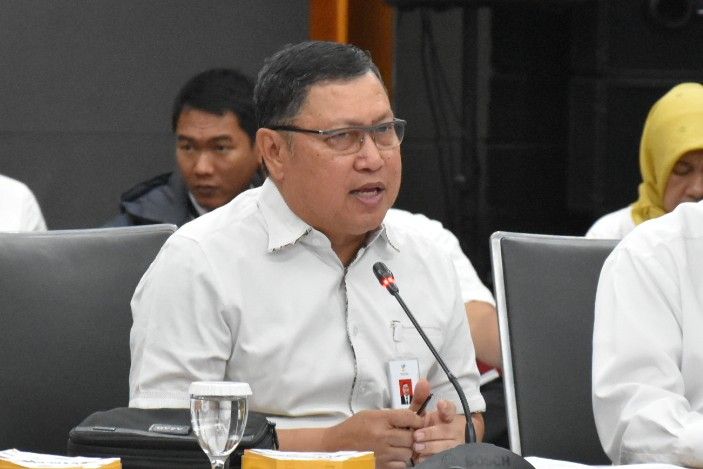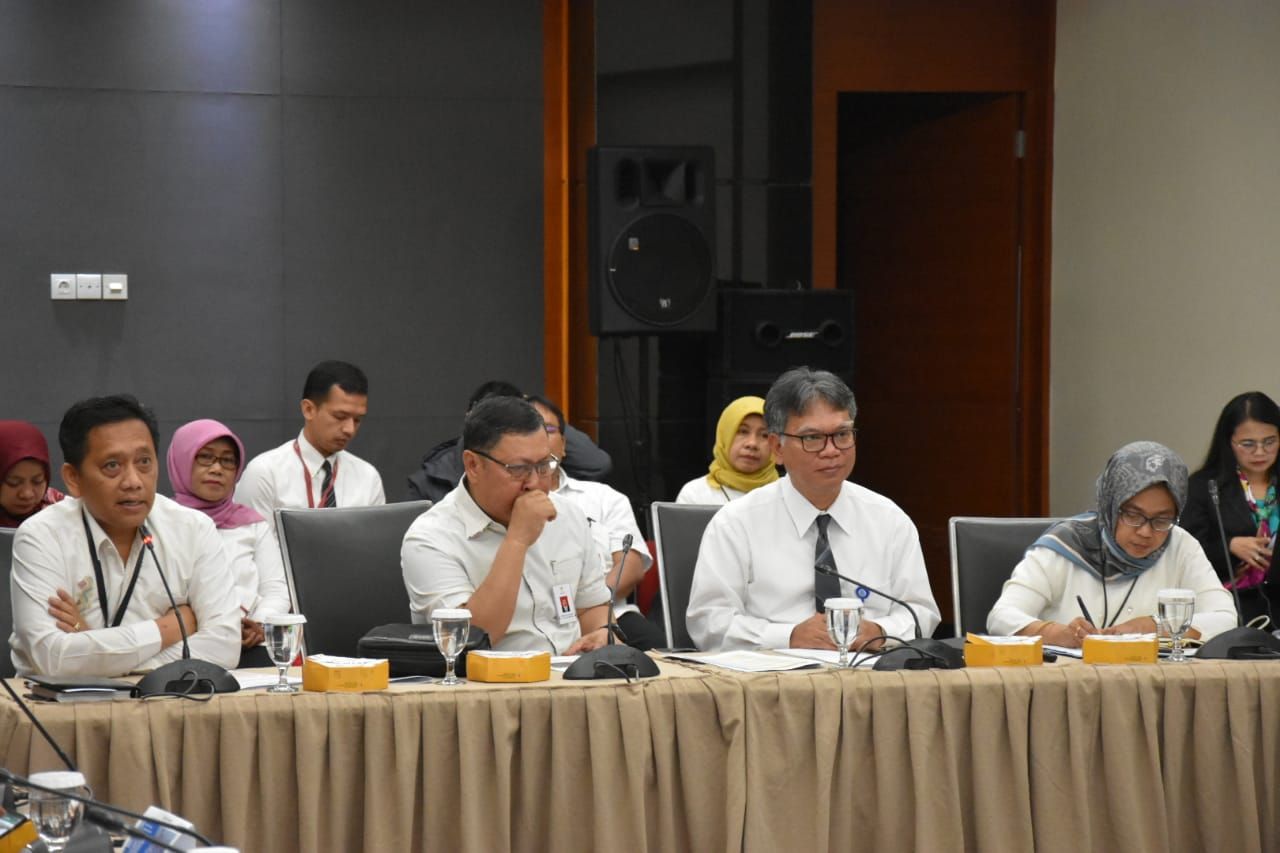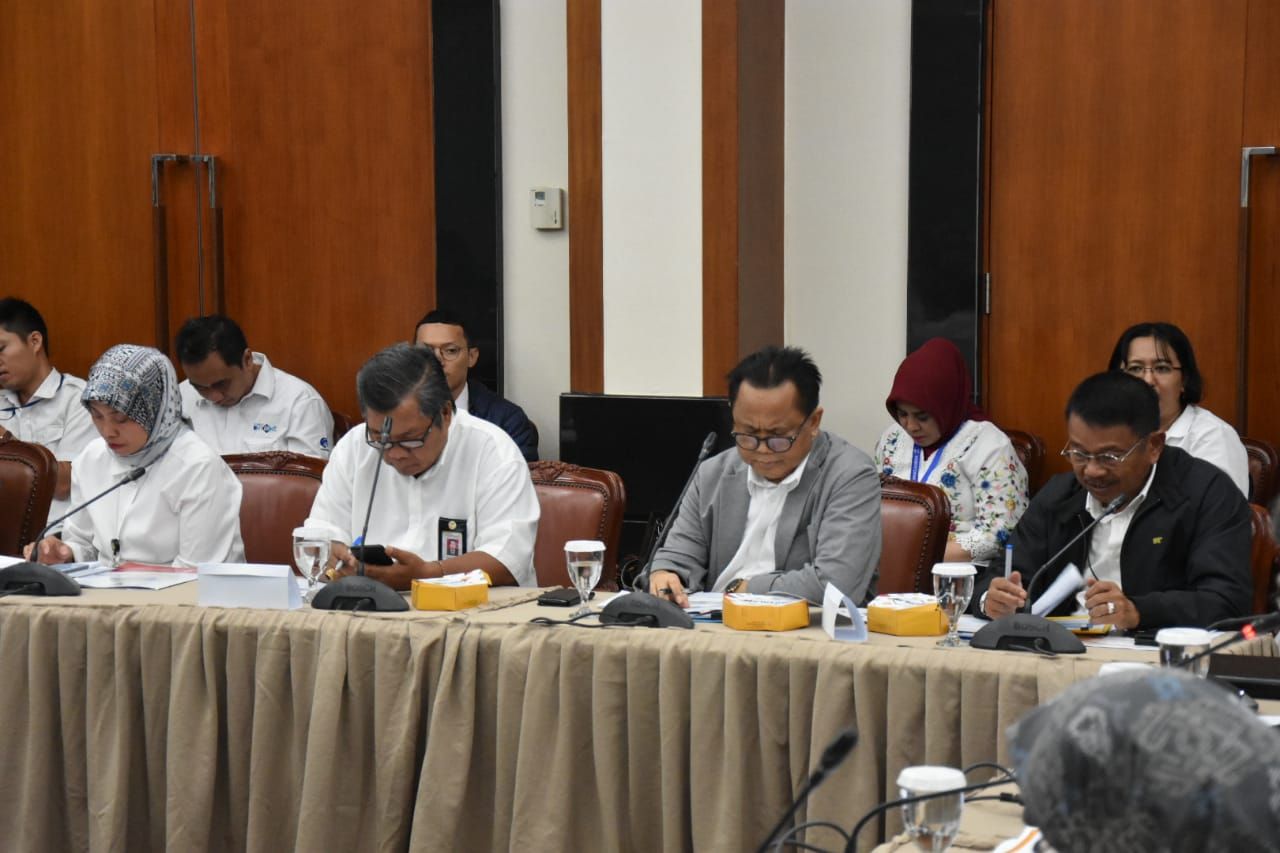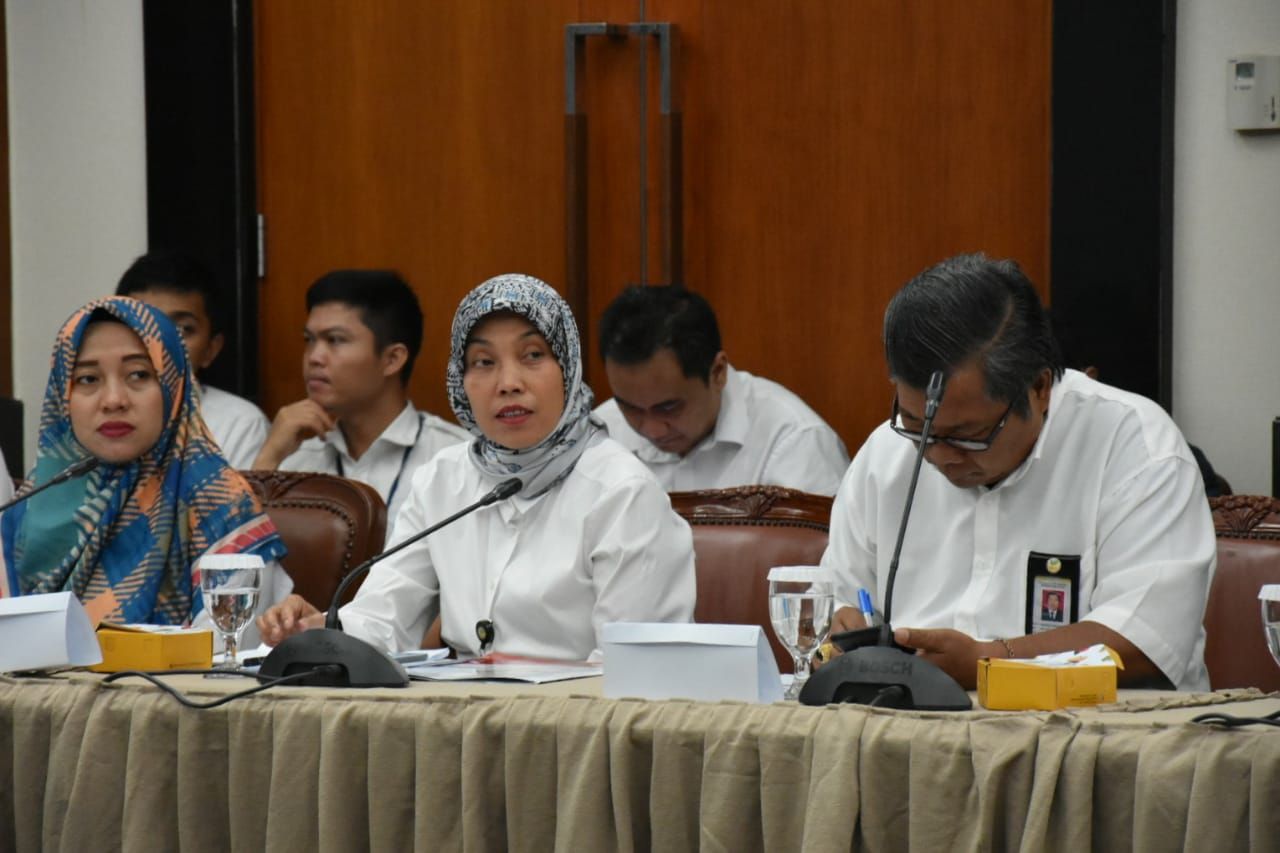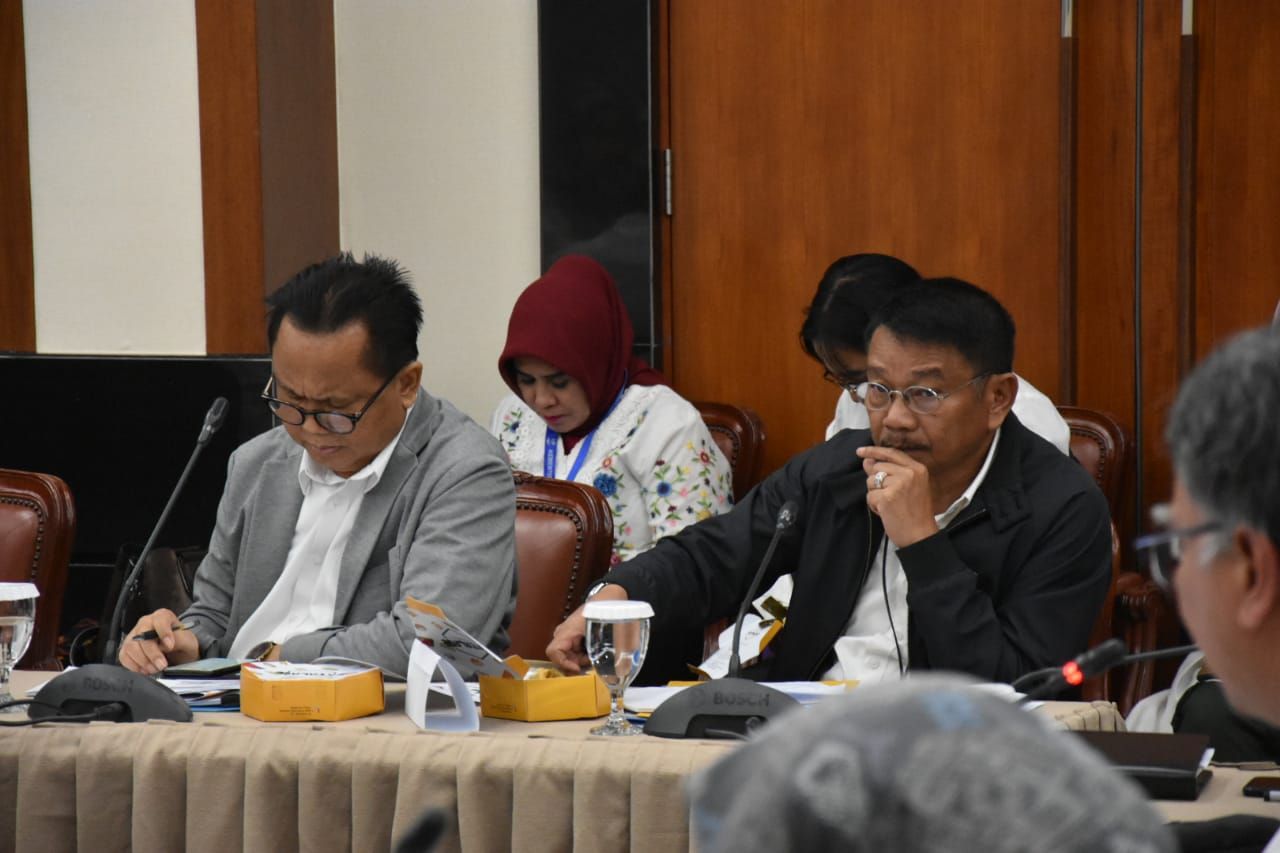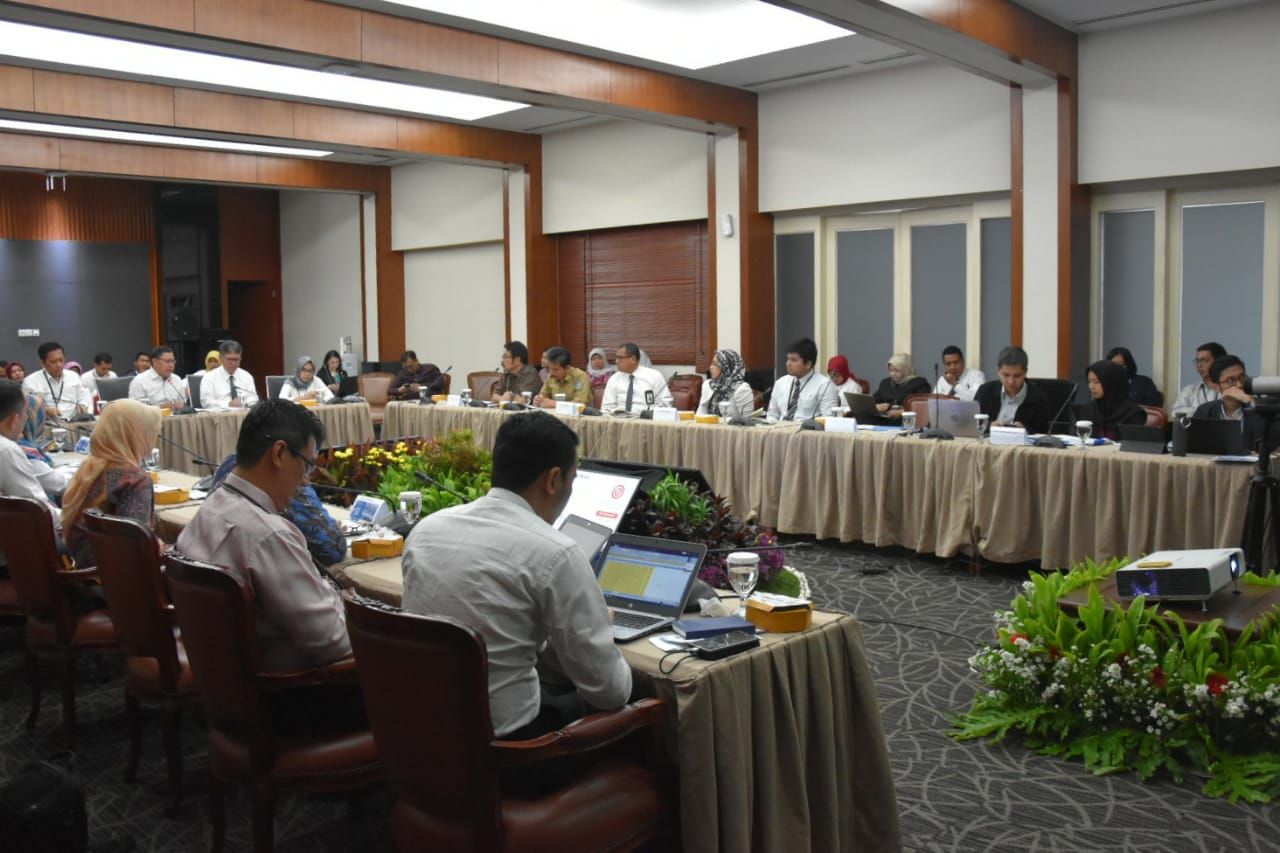JAKARTA (January 20th 2020) - Director General of Poverty Handling (Dirjen PFM), Andi ZA Dulung Conveys Socialization of Basic Food Program through Video Conference at Bank Indonesia Head Office. In this dissemination, the Director General of Poverty Handling said that the Basic Food Program is a development of the Non-Cash Food Assistance (BPNT) program that has been implemented in all districts / cities in Indonesia in 2019. "These staples are just additions, if we talk about BPNT, how come not many people understand , but if we talk about basic food, I think people understand everything, ”said the Director General of Poverty Handling.
The Director General of Poverty Handling said that several things that had changed from the BPNT program to the Staple Food Program were the number of aid indexes and the types of foodstuffs provided. In addition, this basic food program can also help prevent stunting by paying attention to the nutrition of the food given. "The direction of Mr. President that we caught was because of a change from Rp110,000 to Rp150,000, then the material was expanded, at the same time this program helps the stunting prevention program because there is nutrition that is considered, this is what we call the Staple Food program,"
The distribution of basic foodstuff program funds is carried out through the electronic money mechanism to beneficiary families (KPM) using a payment instrument in the form of a Prosperous Family Card (KKS). The aid funds are used only to purchase food commodities that have been determined for the staple food program at the Electronic Mutual Cooperation (e-Warong) Warung and cannot be withdrawn in cash. In addition, the choice of food commodities other than rice and eggs must still pay attention to the nutritional content that comes from carbohydrates, animal protein, vegetable protein, as well as vitamins and minerals.
In accordance with the direction of the Coordinating Minister for Human Development and Culture (Menko PMK) at the Ministerial Meeting (RTM) December 17th 2019, for foodstuffs that can be spent other than rice and eggs, namely carbohydrates, vegetable protein sources, and animal protein sources. In addition, Papua and West Papua regions will receive special treatment, namely assistance will continue to be provided to aid recipients who do not have a Population Identification Number (NIK).
The Director General of Poverty Handling further explained that related to the Papua region, that in Papua it was given special treatment because in that area there were still many underprivileged people who did not have NIK. "We convey to our friends in the regions that there were those who used to say that in Papua, in particular the number was tens of thousands without a NIK and it was considered wrongly targeted. So the meaning is not that, people who do not have NIK are actually poor people. there is no NIK,” explained the Director General of Poverty Handling to all the participants who attended the video conference.
Continuing his explanation, the Director General of Poverty Handling said that if later the number of KPMs that did not have a NIK was low then assistance would not be given to KPMs who did not have an NIK, but if they had completed the administration it would be given. "So later, if the number who do not have NIK is not too many, we will decide that those who do not have NIK will not be given, after it is completed, it will be given," added the Director General of Poverty Handling.
The video conference was held by the Ministry of Social Affairs of the Republic of Indonesia in collaboration with the Coordinating Ministry for Human Development and Culture and Bank Indonesia in the context of transitioning the BPNT program to a basic food program. The activity was also attended by the Secretary of the Directorate General of Poverty Handling, Mrs. Nurul Farijati, Director of Poverty Handling Region I, Mr. AM Asnandar, Director of Poverty Handling Region II, Mr. I Wayan Wirawan, and Director of Poverty Handling Region III, Mr. Nur Pujianto. In addition, there were representatives of the Coordinating Ministry for Human Development and Culture, Bank Indonesia, TNP2K, and State Owned Bank Association as well as Heads of Social Services at the Provincial / Regency / City levels throughout Indonesia.
 Bahasa
Bahasa
 English
English

